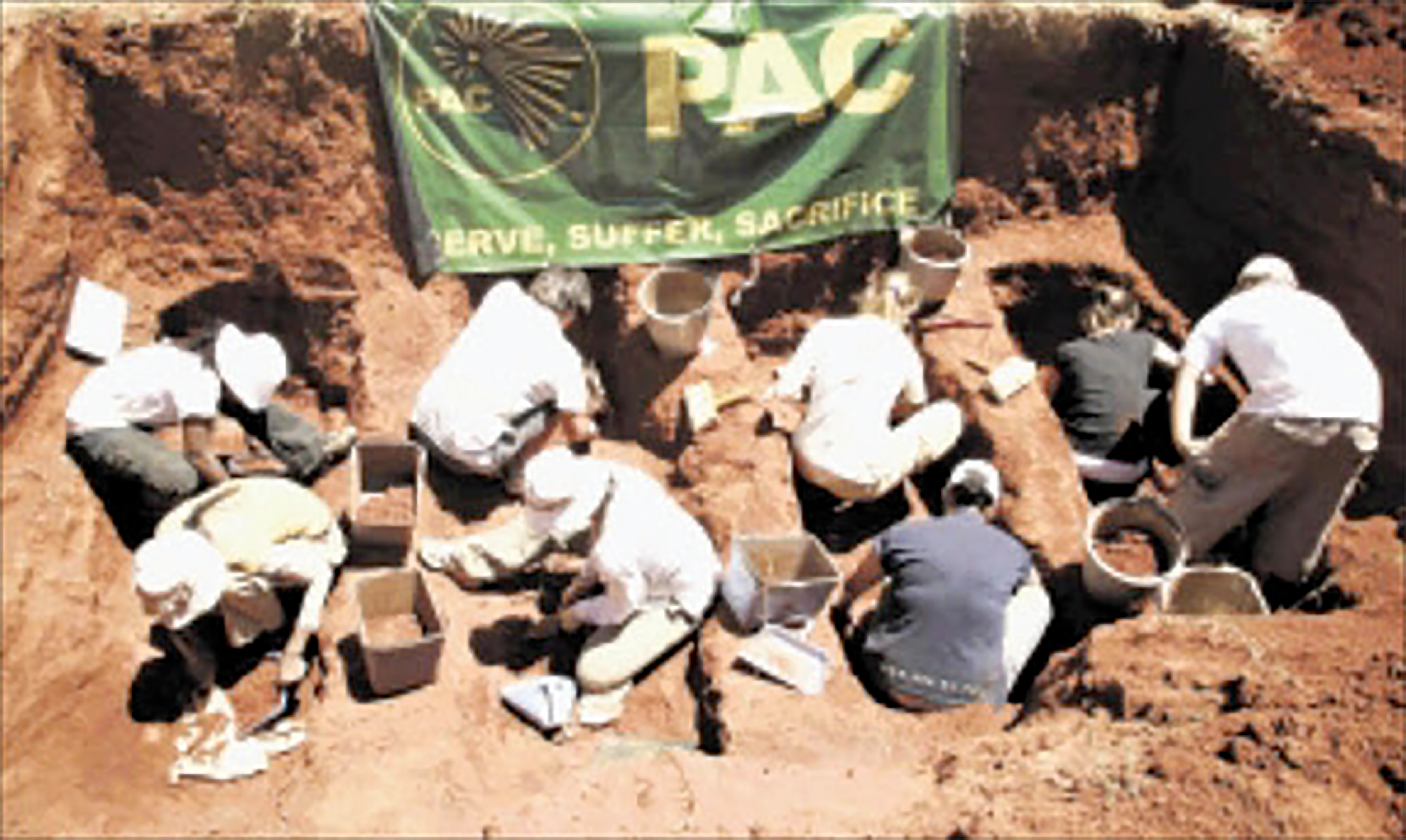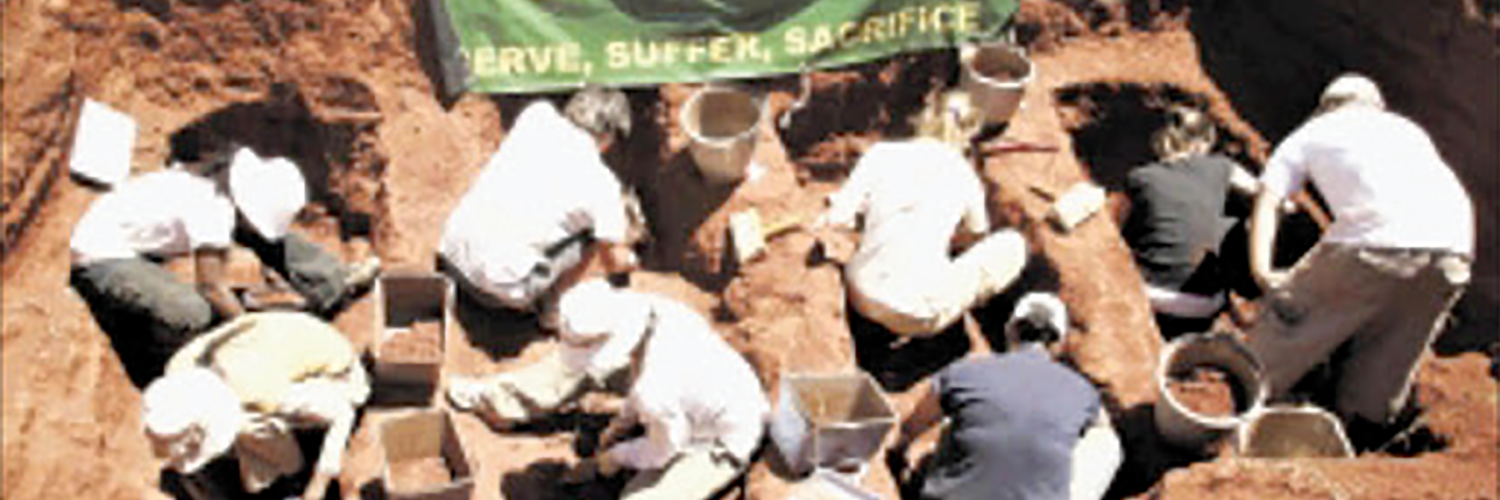MEMORY: Honouring the forgotten heroes of the struggle who, argues the author of this article, have been obscured in the broader narrative of apartheid history
By Xolile George Tyamzashe

In the annals of South Africa’s tumultuous history, the names of Zibongile Dodo, Nontasi Shweni, Mountain Ngantweni, Bhidekile Ntsabo, Veyishile Qoba, and Mqokeleli Nqulwana may not be as widely recognised as other prominent figures of the liberation struggle.
These individuals, known as the Langa Six, were members of the Pan Africanist Congress of Azania’s military wing, Poqo, who were convicted of attacking police vehicles in Langa in 1962. Thus, their sacrifices and contributions to the fight against apartheid, however, should not be relegated to the footnotes of history.
The story of the Langa Six is one of courage, sacrifice, and unwavering commitment to the cause of freedom. These brave individuals, like many others before them, heeded the call to resist oppression and injustice, even in the face of grave danger. Their actions were not acts of senseless violence, but rather a bold statement against a system that sought to dehumanise and marginalise Africans.
Among the Langa Six, Nontasi Albert Shweni stands out as a symbol of resilience and determination. After a fierce battle and subsequent arrest in Ntloze Hill, Shweni was sent to Robben Island, the notorious prison where so many freedom fighters were held captive. Despite facing a harsh sentence of 20 years, Shweni refused to be silenced. His unwavering spirit and commitment to the struggle ultimately led to his tragic fate – three years into his sentence he was fetched by an aeroplane in Robben Island to be executed by hanging at the gallows in Pretoria, a martyr for the cause of freedom.
As we commemorate the centenary of Robert Sobukwe, a towering figure in South Africa’s liberation history, it is imperative that we also remember and honour those who fought alongside him and heeded to his call, like the Langa Six. These unsung heroes, who laid down their lives for the dream of a truly free and liberated Azania, deserve to be lifted from obscurity and celebrated for their bravery and sacrifice.
It is a travesty that the memories of these fallen heroes have been neglected and obscured in the broader narrative of apartheid history. The custodians of memory and knowledge have a responsibility to ensure that the stories of individuals like the Langa Six are preserved and shared widely, in the media, in schools, in universities, and in everyday conversations. Only by acknowledging and honoring the sacrifices of these brave men and women can we truly appreciate the depth of courage and resilience that defined the struggle for liberation in South Africa.
The blood of the fallen African warriors, from Moshoeshoe to Sobukwe, the Langa Six to Biko, runs like a river through the veins of South Africa’s history. Their sacrifices should never be forgotten, their names should never be erased. Let us remember the Langa Six and all those who fought and died for freedom, justice, and equality, and let their legacy inspire future generations to continue the struggle for a better tomorrow.
Honoring the sacrifices of lesser-known freedom fighters like the Langa Six is crucial in shaping historical narratives for several significant reasons. Recognizing the contributions of lesser-known freedom fighters ensures a more inclusive and representative historical narrative. By highlighting the diverse voices and experiences of individuals who may have been marginalized or overlooked in traditional accounts of history, we enrich our understanding of the complexities of the struggle against oppression and injustice.
Honoring the sacrifices of lesser-known freedom fighters helps to preserve their memory and legacy for future generations. By ensuring that their stories are not forgotten or overshadowed by more prominent figures, we pay tribute to the courage and resilience of those who fought tirelessly for a better future, inspiring others to continue the fight for justice and equality.
By acknowledging the role of lesser-known freedom fighters like the Langa Six and thousands more, we contribute to a more accurate and nuanced understanding of historical events. Each individual who participated in the struggle against apartheid played a unique and significant role, and their contributions deserve to be acknowledged and recorded in the historical record.
Learning about the sacrifices of lesser-known freedom fighters can be a source of inspiration and empowerment for present and future generations. By highlighting the courage and dedication of individuals who risked everything for the greater good, we encourage others to stand up against injustice and work towards positive change in their own communities and societies.
Many lesser-known freedom fighters, particularly those from marginalized communities, may have been overlooked or deliberately excluded from mainstream historical narratives. By honoring their sacrifices and contributions, we challenge this marginalization and affirm the importance of all voices in shaping our understanding of history.
Including the stories of lesser-known freedom fighters enriches our collective narrative of the struggle for liberation in South Africa. By weaving together the experiences of individuals from diverse backgrounds and perspectives, we create a more comprehensive and holistic understanding of the complexities and challenges faced during this pivotal period in history.
In conclusion, honouring the sacrifices of lesser-known freedom fighters is essential for creating a more inclusive, accurate, and empowering historical narrative. By recognizing the contributions of all individuals who participated in the struggle against apartheid, we ensure that their stories are preserved, their legacies are celebrated, and their courage continues to inspire future generations.
- Xola Tyamzashe is a former member of the Azanian People’s Liberation Army, the military wing of the Pan Africanist Congress of Azania and author of the upcoming poetry collection titled, Products of the Azanian Chimerenga and autobiography titled The Metamorphosis of a Lone Revolutionary: Memoirs of a Child Soldier
POSITIVE GROWTH PROSPECTS FOR AFRICA
SPECTRE: African countries to dominate the world’s top 10 growing economies, ECA report
By Own Correspondent
Addis Ababa, Ethiopia – African countries are predicted to dominate the world’s top 10 highest growing economies in 2024, according to a report on Recent Economic and Social Developments in Africa by the Economic Commission for Africa (ECA).
The most notable growth drivers in Africa in 2024 are expected to be Niger, Senegal, Ivory Coast, DRC and Rwanda.
Adam Elhiraika, Macroeconomics and Governance Division director at ECA, said Africa was the fastest growing region after East and South Asia in the developing world in 2023, and Africa will continue this trend in 2024 and 2025.
The report says that Niger and Senegal are expected to experience significant economic growth due to the increase in hydrocarbon production and exports.
Growth in Niger will be fuelled by the revival of agricultural production – although it is vulnerable to unfavourable weather conditions – and a rise in crude oil production, which will have a beneficial impact on the transportation sector, according to the report.
However, recent military coups in, together with sanctions from regional blocs, have disrupted economic activity and incurred significant social costs.
The growth in Senegal is expected to be driven by rising private and infrastructure projects. However, residents in up to 15 African nations are participating in elections this year, including the recently concluded presidential elections in Senegal, which could impact the short-term growth and development.
“Ivory Coast, DRC and Rwanda – the robust expansion in these nations is attributed to an increase in infrastructure investment, continuous development in tourism, good performance of the mining industry, and advantages of economic diversification,” said Elhiraika.
The report predicts that growth in the DRC will be fuelled by the extractive sector due to the opening of new oilfields, as well as by agriculture, services, and mining, in accordance with the national strategy to boost social and investment expenditures.
On the other hand, indications are that Rwanda’s growth will be fuelled by private consumption and investment, while Ivory Coast’s growth is driven by increased investment stemming from pro-competitive market reforms and business environment improvements in the National Development Plan, alongside private consumption influenced by decreasing inflation.
The report shows that the continent is expected to grow from 2.8% in 2023 to 3.5% in 2024 and reaching 4.1% in 2025, mainly underpinned by net exports, private consumption and gross fixed investment.
Africa’s economic growth remains unstable and lower than potential, and the rate required for achieving the Sustainable Development Goals (SDGs) and Agenda 2063 target, necessitating major fiscal and monetary policy shifts as well as increased efforts to address internal and external balances, inflation and debt issues.
In 2023, the report says, the global economy showed resilience with declining energy and food prices, increased consumption in China, and improved US economic growth. Still, the outlook remains uncertain, with high debt, rising borrowing costs, weak global trade, and mounting geopolitical risks, constraining progress towards the SDGs and Agenda 2063 targets.
“The region faces threats of tighter monetary and fiscal conditions, and notable debt sustainability risks,” noted Elhiraika adding that the ongoing climate catastrophes and extreme weather occurrences will continue to negatively impact agriculture and tourism, while geopolitical instability will continue to affect certain subregions in Africa.
Trade in Africa continues to face headwinds reflected in net capital outflows and subdued export revenues, with intra-African trade remaining relatively low.
Africa’s total exports are largely concentrated in extractive commodities, which has kept Africa trapped at low points along critical value chains.
Social development trends in Africa are concerning, with rising poverty, inequality, and unemployment exacerbating the continent’s challenges to achieve the SDGs.
The ECA report notes that the capacity of African countries to effectively tackle poverty and inequality is severely constrained by the low poverty-reducing effect of economic growth.
The key recommendations in the report include:
- To revitalise trade in Africa, it was necessary to reduce trade costs in Africa. The implementation of the AfCFTA was vital to boost trade, eliminate barriers, and promote other trade liberating strategies.
- To achieve the Sustainable Development Goals (SDGs), it was necessary to mobilize more domestic resources and introduce innovative finance mechanisms through capacity building, institutional strengthening, and promotion of (tax) reforms; use digital technology; introduce environmental taxation; implement innovative finance mechanisms, such as debt swaps.
With the increasing number of countries in or at risk of debt distress, sustainable debt relief and restructuring measures were required.
Countries should implement structural reforms to help to revive growth and bolster resilience and to enhance the effectiveness of fiscal and monetary policies to contain inflation.
African countries should also capitalize on the current global shifts, including the transition towards renewable energy and the revitalized significance of critical minerals.

































